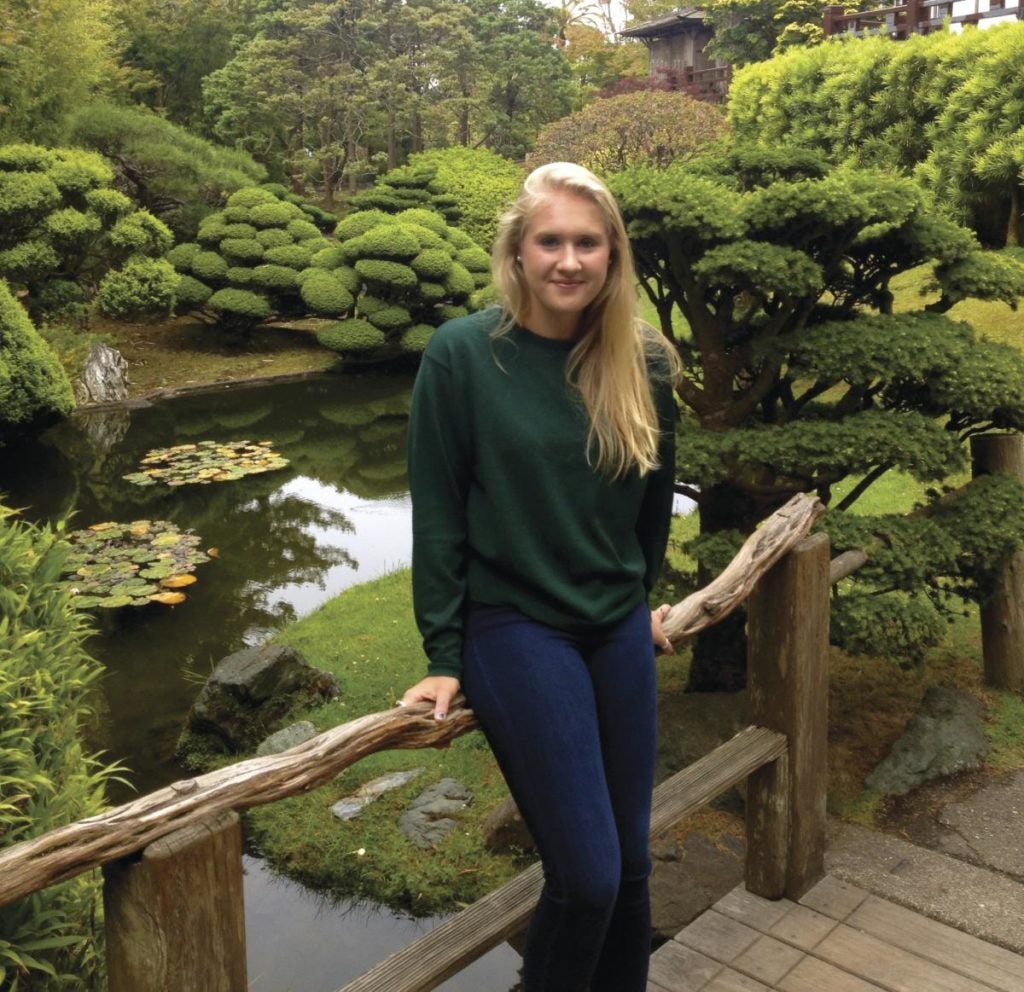
Summer Vacation Inspires Student’s Curiosity in Environment and Energy

A native of New York City’s Upper West Side, Elena Rohner (C’18) spends her summers vacationing in The Adirondacks. Her family’s cabin, on a small island six miles from the town of Long Lake, New York is accessible only by boat. While there is neither WiFi nor electricity on the island, her father recently installed solar panels that power, among other luxuries, a few 12-watt light bulbs to replace the previous propane-powered lights.
The contrast of living in what Rohner describes as a “concrete palace” throughout the year and spending her summers in the remoteness of her family’s vacation home spurred her early interest in energy, environmental stewardship, and sustainability. When Rohner arrived on Penn’s campus for her freshman year in the fall of 2014, she was determined to pursue an academic curriculum that allowed her to explore these interests. Her list of memorable classes is already lengthy, but Rohner says she was particularly inspired by Physics 016: Energy, Oil and Global Warming. “The class challenged the way that I thought,” Rohner reported. “I realized that decisions about energy go beyond appealing to [people’s] emotion and need to include realistic factors that have implications for policy, such as whether people will pay the extra amount of money it costs to buy electricity produced from [solar] panels versus natural gas.”
Last summer, Rohner is working with Wharton’s Professor Natalya Vinokurova on a Penn Undergraduate Research Mentorship (PURM) grant sponsored by the Kleinman Center and organized by the Center for Undergraduate Research and Fellowships (CURF). Rohner and her fellow student Joshulyne Park are investigating BP’s safety culture, paging through hundreds of OSHA investigation reports and citations to build a database of information, which they will then analyze to better understand trends in BP’s safety record.
Rohner says that while her summer experience has helped her understand the way that regulators work, she is most excited to have concrete research experience. She thanks the Kleinman Center and CURF for providing meaningful opportunities for undergraduates outside of the classroom: “No one teaches you this in a course, how to really do [research].”
Rohner plans to declare a double major in Urban Studies and Environmental Studies. After that, she’s keeping her options open. Not surprisingly, Rohner says she could see herself being a Park Ranger or an Urban Planner, either conserving open space or designing more sustainable cities.
